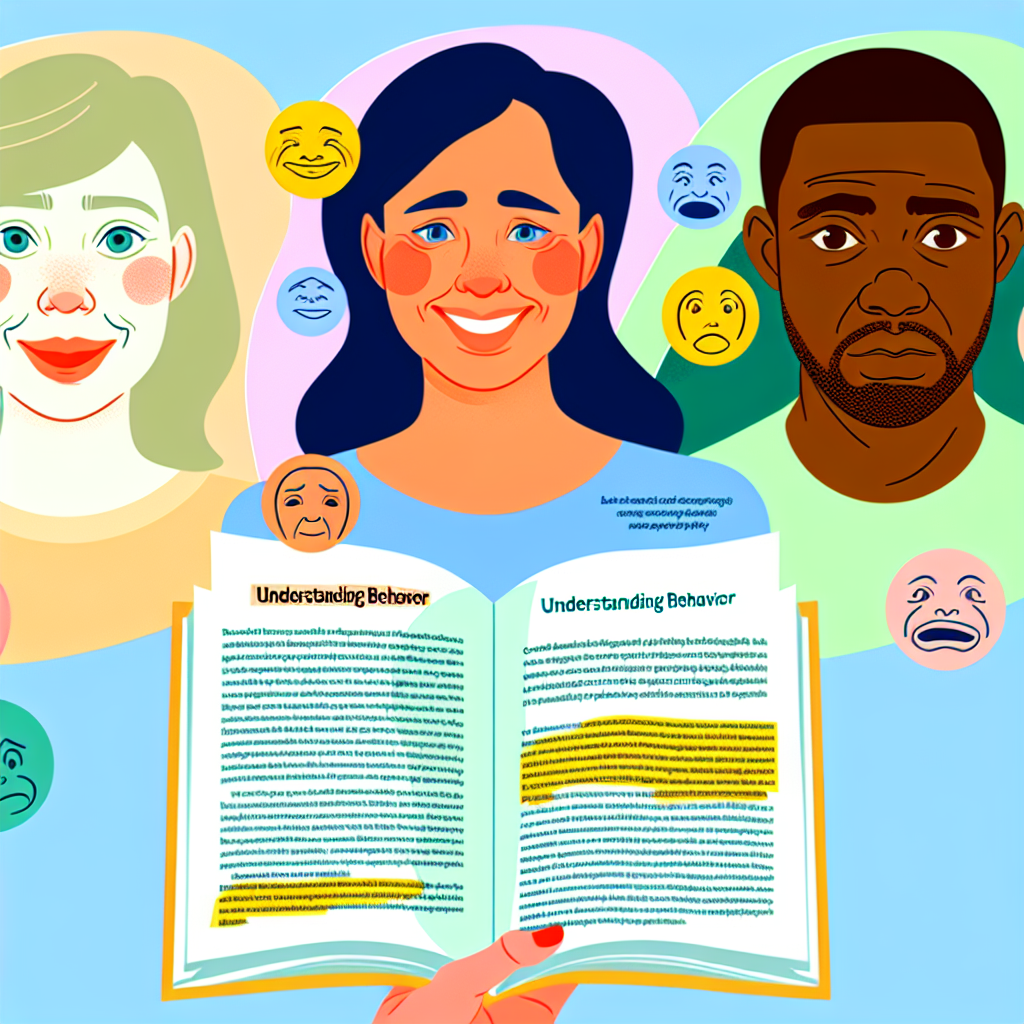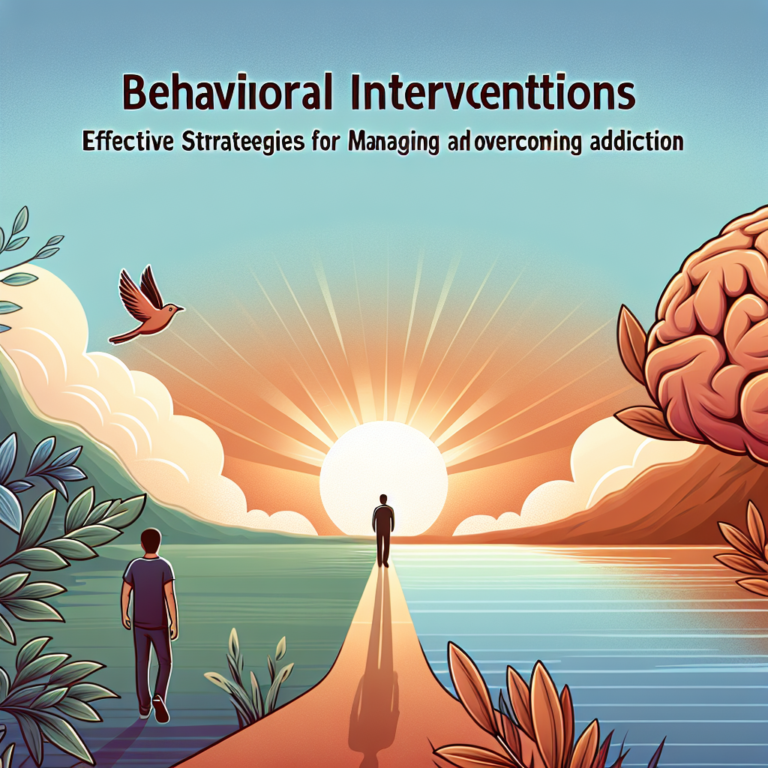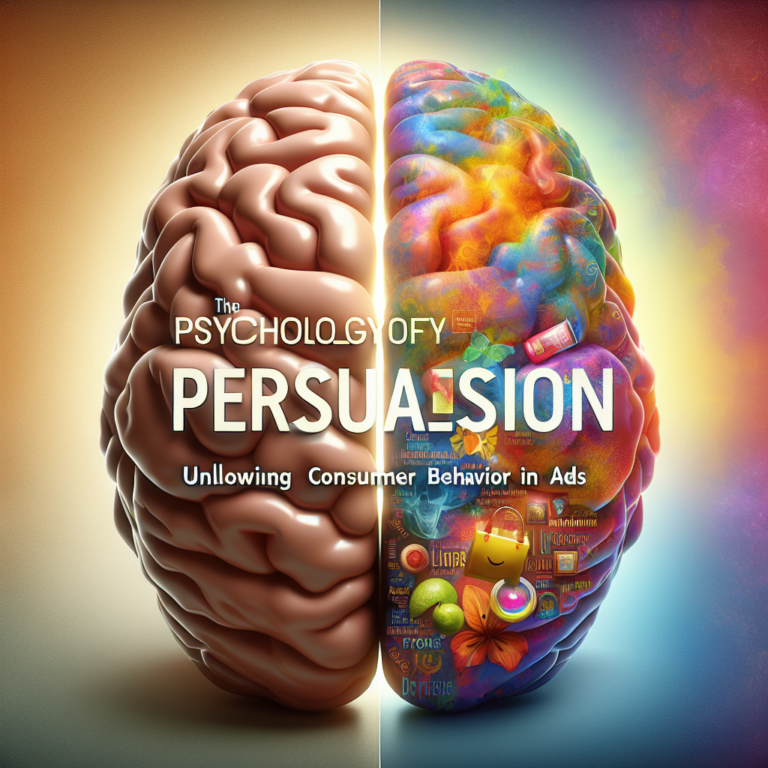
Understanding Behavior: Key Takeaways from Influential Psychology Case Studies
Introduction
Understanding behavior is a quest as old as humanity itself. What makes us act the way we do? Why do certain stimuli evoke specific reactions? The psychology field, with its wealth of case studies, has shed light on many of these intriguing questions. In this ultimate guide, we will explore essential takeaways from influential psychology case studies that help us decode human behavior. By gaining insights from these studies, you can enhance your understanding of behavior, both in yourself and in others, allowing for more effective communication, empathy, and personal growth.
The Quest for Understanding Behavior
The desire to understand behavior isn’t just an academic pursuit; it has real-world implications in areas like education, therapy, marketing, and even relationships. Greater awareness of human behavior can lead to improved interactions, conflict resolution, and emotional intelligence.
In this article, you will journey through various influential case studies, each illuminating different aspects of behavior. Our obvious focus will remain on "Understanding Behavior: Key Takeaways from Influential Psychology Case Studies," drawing valuable lessons from each to help you navigate the complexity of human actions.
Case Study 1: The Stanford Prison Experiment
Overview
Conducted in 1971 by psychologist Philip Zimbardo, the Stanford Prison Experiment aimed to explore the psychological effects of perceived power. The study involved college students randomly assigned to be either guards or prisoners in a simulated prison environment.
Key Takeaways
Situational vs. Dispositional Factors: The guards displayed abusive behavior not necessarily due to their personalities but due to the situational pressures of their roles.
Factor Description Situational Factors External environment influences behavior Dispositional Factors Personal characteristics influence behavior - Deindividuation: The experiment illustrated how individuals lose self-awareness and accountability when placed in groups, leading to uncharacteristic actions.
Relevance
The findings from this study are crucial when discussing “Understanding Behavior: Key Takeaways from Influential Psychology Case Studies.” They encourage us to consider the settings we create for others and ourselves, demonstrating that a supportive environment can foster positive behaviors while a negative one may elicit harmful actions.
Case Study 2: Little Albert Experiment
Overview
John B. Watson and Rosalie Rayner conducted the Little Albert experiment in 1920 to explore classical conditioning. They exposed a baby named Albert to a white rat while simultaneously making a loud noise, which later resulted in Albert developing a fear of small, furry animals.
Key Takeaways
Classical Conditioning: This experiment details how behaviors and emotional responses can be learned through conditioning.
Behavior Conditioned Response Fear of rats Loud noise triggers fear Generalization Fear extends to other animals - Ethical Implications: The study raises ethical concerns about the treatment of subjects in psychological experiments, helping shape the ethics of research today.
Relevance
When examining “Understanding Behavior: Key Takeaways from Influential Psychology Case Studies,” it’s imperative to recognize how learned behaviors impact emotional responses. The Little Albert case teaches us that our fears and phobias can be shaped by our experiences, underscoring the importance of a safe environment for emotional development.
Case Study 3: The Bobo Doll Experiment
Overview
Albert Bandura’s Bobo Doll experiment in 1961 explored observational learning. Children who observed adults behaving aggressively towards a Bobo doll were more likely to imitate that behavior compared to those who did not witness aggression.
Key Takeaways
Observational Learning: This study shows that behavior can be learned by observing others, indicating that role models significantly impact social behavior.
- Imitative Behavior and Aggression: The results support the idea that exposure to violence can lead to aggressive behavior over time.
Relevance
Understanding the findings of this influential case study enhances your grasp of “Understanding Behavior: Key Takeaways from Influential Psychology Case Studies.” It brings attention to the significant influence of media and parental behavior on children and raises awareness about the importance of nurturing environments.
Case Study 4: The Milgram Experiment
Overview
In the early 1960s, psychologist Stanley Milgram conducted a study on obedience to authority, illustrating how far individuals would go in following orders. Participants believed they were administering electric shocks to another individual, demonstrating how authority could lead to unethical actions.
Key Takeaways
Obedience: The experiment revealed that people are likely to follow orders even against their moral beliefs.
Factor Description Authority Influence Higher likelihood of compliance Moral Conflict Struggle between ethics and authority - Ethical Concerns: Like the Stanford Prison Experiment, Milgram’s study raised questions about ethical standards in psychological research.
Relevance
The Milgram Experiment serves as a striking example within “Understanding Behavior: Key Takeaways from Influential Psychology Case Studies.” It teaches the duality of human nature—how proximity to authority can cloud individual judgment, impacting our perceptions of right and wrong in social situations.
Theoretical Applications in Everyday Life
By synthesizing the insights from these case studies, we can bridge the gap between psychology and real-world application. Here are some areas where understanding behavior can be transformative:
1. Education and Learning
In educational settings, teachers can utilize insights from observational learning to foster positive behaviors in students. Role modeling desirable behaviors can lead to enhanced classroom dynamics and student engagement.
2. Therapeutic Practices
Psychotherapy can benefit from the understanding of conditioned responses. Therapists often guide clients through reframing their fears or negative beliefs, promoting healthier emotional responses.
3. Parenting and Child Development
Parents can apply principles from classical conditioning and observational learning, recognizing that their behaviors shape their children’s responses to the world.
4. Workplace Dynamics
In corporate environments, leadership can learn from Zimbardo and Bandura’s findings. Establishing a supportive culture that models ethical behavior can foster teamwork and productivity.
Conclusion
Understanding behavior not only enriches our self-awareness but also improves our interactions with others. The key takeaways from influential psychology case studies illuminate the complexities of human actions and motivations. As we have explored, psychology offers invaluable insights into why we behave the way we do, revealing how situational influences, observational learning, and ethical considerations shape our daily lives.
By integrating these insights into your life, whether in personal relationships, classrooms, or workplaces, you can cultivate a deeper understanding of behavior that promotes empathy, compassion, and growth.
FAQs
1. Why is understanding behavior important?
Understanding behavior is essential for enhancing communication and relationships, improving emotional intelligence, and fostering a supportive community.
2. How can I apply these psychology case studies in daily life?
You can apply these concepts to promote empathy, recognize the influence of environment and role models, and address personal fears and phobias.
3. Are there ethical considerations in psychological studies?
Yes, ethical considerations are critical in psychological studies, focusing on the well-being and informed consent of the participants.
4. How does observational learning work?
Observational learning occurs when individuals mimic behaviors they observe in others, especially role models.
5. What lessons can we draw from the case studies discussed?
Key lessons involve recognizing the power of situational factors, the influence of role models, and understanding the ethical implications of our actions.
By reflecting on the important findings within "Understanding Behavior: Key Takeaways from Influential Psychology Case Studies," you’re equipped to apply these insights in your life effectively, ensuring continual growth and understanding in your journey of human interaction and behavior.















